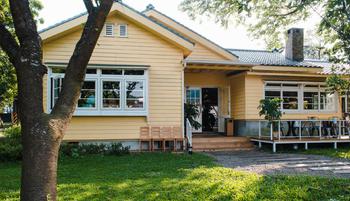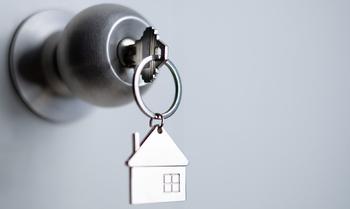How Much Should You Spend
on Housing?
Studies show that those who spend more than 30% of their income to build, rent or purchase a house may likely face difficulties. The COVID-19 pandemic left a trail of financial challenges and struggling individuals, but it seems to have affected renters more than property owners. This is because owning a home means one can build equity and use it when the need arises. Renters, on one hand, do not have the opportunity to earn revenue from a leased home nor can they pawn their property to get loans in the event of a financial crisis.
Disadvantages of Renting
Many renters are not in a good financial space and still trying to make ends meet, particularly at present with the pandemic nowhere near over. The most vulnerable are renters who spend around 30% of their income to ensure they have somewhere to live.
In a research conducted by The Ascent, the findings pointed out the strong possibility of facing financial challenges if you allocate more than 30% of your earnings to fund housing needs. And not just during the pandemic, but for a long time thereafter. This is the reason why you have to think about your living situation seriously.
Housing Overspending
Experts have warned against spending a huge portion of your earnings on housing, especially if you have bills to pay. The formula is simple: leave enough money to cover your bills. This prevents you from accumulating debt, which may take years to pay in full.
The last thing you would want is to lose the home you are living in. Rental payments are high these days, so eviction is on the cards for those who cannot pay. Increasing mortgage rates also put homes at risk of foreclosure. Worse comes to worst, you could end up with a bad credit history and have trouble managing your finances.
Prioritise Low Housing Costs
When it comes to your housing costs, set the boundary to 30% or less of your monthly income. For tenants or renters, make sure your rent comes with an insurance plan. Homeowners, for their part, should make sure their 30% expenses already include property taxes, mortgage payment and insurance.
If you rent a property that is beyond your means, moving somewhere more affordable offers a practical solution. But this is not always easy. Not all cities provide affordable housing opportunities, and it is often a challenge to find a cheaper home.
Moving expenses are likewise challenging. Moving companies charge a fortune for simple deliveries. It is best to ask a friend who drives so they can help you with your move without any cost. Otherwise, you will have to allocate a portion of your budget to hire movers. For those unable to buy a home but badly need one, go to your local government to enquire about rental assistance programs.
Your Next Step
Always remember the 30% rule. If the cost of maintaining your Canberra property strains your budget, it is a sign to downsize. As low inventory seeps into the market, sellers take centre stage. Property owners may want to sell their home to pay off their mortgage. Apply for a plan that is easier to manage. Although renting until you have saved enough to buy your own home is also a good idea.
Need help with your investment property in Canberra? Get in touch with our team via phone or email or fill in the form on our site. Our dedicated buyers advocates will guide and assist you in every step.
Most recent blog articles
The Best Long-Term Strategies for Your Investment Property in Canberra
Successful long-term investment property in Canberra requires careful planning, diligence and a commitment to sound investment principles
Read MoreThe Different Types of Investment Property and Their Pros and Cons
Choosing the right investment property requires careful consideration of several key factors. Firstly, define your investment goals: are you seeking rental income, property appreciation, or a mix of both
Read MoreThe Right Time to Buy a Property in Canberra: 8 Important Reminders
Buying your first property is an exciting venture, but it's essential to proceed with caution and avoid potential pitfalls
Read MoreHow a Sustainable Property Can Help Reduce Your Utility Bills
By opting for a sustainable lifestyle, you not only secure your financial future but also play a crucial role in creating a greener and more sustainable environment
Read MoreProperty Purchasing Tips for Growing Families: Top 5 Qualities of a Start-Up Home
We will explore the top five qualities of a start-up home for growing families to ensure a smooth transition into a space that fosters happiness and harmony.
Read More10 Benefits of Renting Out Your Property: Becoming a Landlord
The idea of being a landlord might seem daunting at first, but with proper planning and understanding, it can offer numerous benefits and financial opportunities.
Read More







